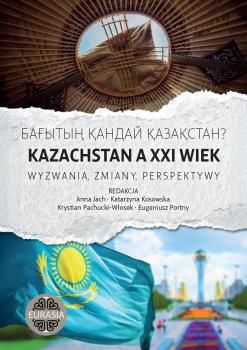„Cezaryjska władza oświeconego autokraty” jako odpowiedź na wyzwania XXI wieku. Casus Kazachstanu .......... 233
Synopsis
‘THE CAESARIAN POWER OF AN ENLIGHTENED AUTOCRAT’ AS A RESPONSE TO THE CHALLENGES OF THE 21ST CENTURY: THE CASE OF KAZAKHSTAN
The collapse of the Soviet system ofstate governance prompted the post-Soviet republics to seek models for the constitutional organisation of power. The practice of state-building in the Republic of Kazakhstan, after trying out transitional forms and overcoming constitutional crises related to the conflict between the executive and legislative branches, led to the creation of a constitutional model with an extremely strong position for the president. The constitutional model that took shape concentrated ‘Caesarian’ powers in the hands of the head of state, becoming the political and legal foundation of a personalistic authoritarian regime, which contributed significantly to the economic modernisation of the Republic of Kazakhstan. The foundation for the construction of independent Kazakhstan was the authority of the leader, who, using his strong legal and constitutional powers, gave rise to the creation of a personalised government characterised by a cult of personality and nepotism, the presence of which in social, political and economic life was not accepted by society. This was especially true in the face of a dynamically changing reality, manifested in a progres sive socio-economic crisis and the disregard by decision-makers of the human rights and civil liberties guaranteed by the Constitution of Kazakhstan. This chapter will reflect on the evolution of political leadership in Kazakhstan, using the example of the President of the Republic of Kazakhstan, in the context of efforts to make him an enlightened autocrat in the Caesarian model of power as a response to the challenges of the 21st century. The key question remains that of the optimal model of political leadership in Central Asia in the third decade of the 21st century, which, on the one hand, would meet the requirements of the modern world and, on the other hand, would be in line with the political culture of the citizens of Kazakhstan.





